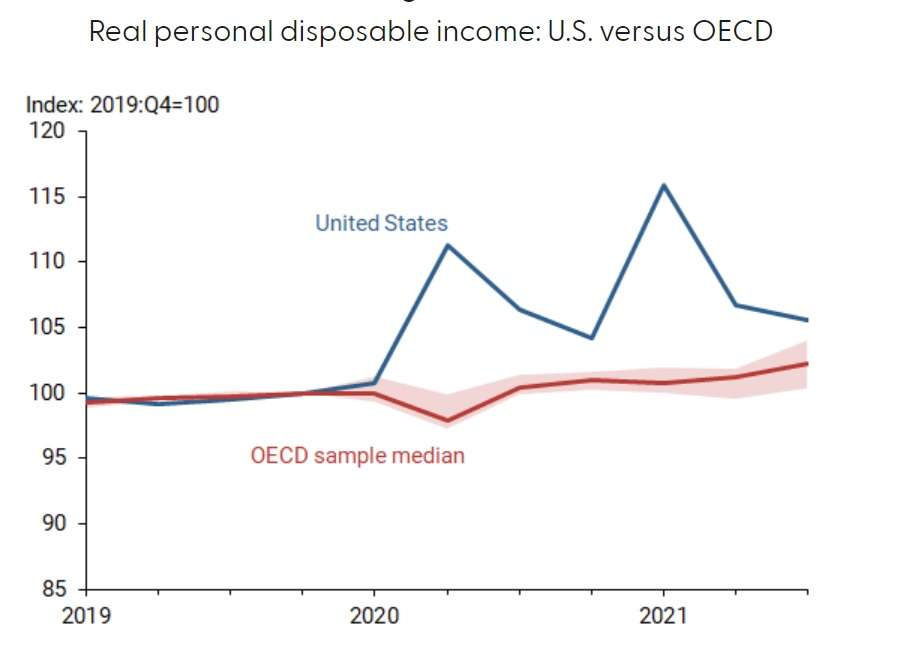Please enjoy the latest edition of Short Circuit, a weekly feature from the Institute for Justice.
New on the Short Circuit podcast: A special live edition on the D.C. Circuit with former D.C. Circuit clerks (as well as frequent Supreme Court arguers) Lisa Blatt, Kelsi Brown Corkran and Paul Clement.
- Cemetery company buys 180-acre property in Readington Twp., N.J. (that is zoned for cemetery use) and makes significant concessions to township officials: 73 acres to be available for public use, no herbicides or pesticides, preexisting buildings to be renovated, no headstones visible to passersby, and more. Officials: Yeah, but still. No permit for you. District court: A state law that says localities must consent to new cemeteries is unconstitutional because it gives officials “unfettered discretion” to reject applicants for any reason, including “cronyism, economic protectionism, ethnic or racial bias, or a preference for a particular religion.” Third Circuit (nonprecedentially): Reversed. The law gives discretion to local legislators—not police, judges, or juries—so it’s fine.
- After a trip to the Supreme Court, the question of whether Baltimore officials’ suit against 26 multinational fossil fuel companies over climate change (and attendant floods, heat waves, auto accidents, and power outages within city limits) will proceed in state or federal court returns to the Fourth Circuit. Which, over the course of 93 pages, reviews the defendants’ eight distinct arguments for federal jurisdiction and rejects all of them. To Baltimore City Circuit Court!
- After the Fairfax County School Board in Virginia eliminated standardized tests from the admissions criteria for the prestigious Thomas Jefferson High School for Science & Technology, Asian-American enrollment dropped from an average of 71% to 54% for the class of 2025. District Court: Which violates equal protection. Fourth Circuit (with concurrence and dissent): The ruling is stayed pending appeal.
- Attorney Steven Biss is most widely known for filing frivolous lawsuits on behalf of former congressman Devin Nunes against, among others, The Washington Post, Esquire, CNN, and a Twitter cow. As a result, like the boy who cried wolf, judges tend not to give him the benefit of the doubt. But at least in this Fourth Circuit case, the trial court was wrong to impose Rule 11 sanctions against him; on the record before it, the district court could not have concluded that Biss’s arguments had “no chance of success” (even if the Fourth Circuit sympathizes with its frustration).
- When Defense Distributed put CAD files on the internet for a 3D-printable single-shot pistol back in 2013, the feds went after them for violating international arms-trafficking laws. Because nothing on the internet ever really goes away, the files remain widely available, even though Defense Distributed remains prohibited from sharing them. In the latest update to this First/Second Amendment saga, the Fifth Circuit (over a dissent) issues a rare mandamus order, instructing the district court to undo its partial severance and transfer of claims against the New Jersey AG to the District of New Jersey.
- The Federal Reporter abounds with ways lawyers can lose their cases. But district judges within the Fifth Circuit can lose cases too—in the sense of reassignment to different jurists. And if you preside over an antitrust case while criticizing antitrust law and suggesting that Standard Oil wasn’t a real monopoly …
- By a vote of 2 to 1, the Fifth Circuit dissolves a district court’s nationwide preliminary injunction of Executive Order 14043, which requires all federal executive branch employees to get vaccinated against COVID-19. Any employees who get fired for refusing the vaccine can ultimately be reinstated with backpay if the suit is successful, so they don’t face irreparable harm in the meantime.
- Man flees from police through several downriver Michigan communities, winds up in Detroit River (in January) and, after a bit of a struggle, submits to arrest. When he’s handcuffed facedown and no longer resisting, one or maybe two officers allegedly kick him in the face repeatedly, breaking his nose. Officer: Okay, but he said he couldn’t be 100 percent sure who kicked him. Qualified immunity? District court: Nope. Sixth Circuit: Nope (on jurisdictional grounds). Concurrence: Nope (on the merits).
- Landlord: Minnesota’s COVID-19 eviction moratorium prevented me from evicting a tenant who “operated a car and boat repair shop … in violation of city ordinances” and others who “threw raucous parties.” An unconstitutional taking? A Contract Clause violation? District court: Party on, raucous dudes! I’m throwing this complaint out. Eighth Circuit: Turn the music down at least. The complaint at least states a cause of action. Remanded.
- Randolph County, Mo. court clerk refuses to give 17-year-old an application to obtain judicial permission to get an abortion without notifying her parents. Can she sue the clerk? Clerk: The judge told me to do that! Eighth Circuit: If that’s so, the clerk is protected by quasi-judicial immunity, but the judge says he doesn’t remember the case and wouldn’t usually give such a direction. So (over a dissent) no QJI. And, because the right to apply for judicial permission for abortion without parental notice is clearly established, no qualified immunity either.
- Creighton University fraternity brothers get pledge black-out drunk and high on marijuana at chapter house and then leave him on campus at 1 a.m. He wanders into the dorm room of a random student and slashes her across the neck with a pocketknife. (She survives.) Can she sue the fraternity? The Eighth Circuit says no.
- Man steals pistol from his parents, starts driving from Wyoming to Washington, DC, with vague plan to shoot then-President Trump. When he reaches Nebraska, he abandons his plan, calls his dad, and accepts his dad’s advice to return home and seek psychiatric help. Yikes! He’s convicted (and sentenced to time served—20 months) of making a threat against the president based on hearsay testimony from medical staff about the phone call with his dad. Eighth Circuit: Doesn’t seem like this was the best use of prosecutorial resources, but the conviction stands.
- Oklahoma dental anesthesiologists sue the Oklahoma Board of Dentistry after their requests for specialty licenses are denied (they had wanted to use the licenses in advertisements). Tenth Circuit: But Oklahoma changed the law and the Board says it will now grant the licenses if the dentists reapply, mooting their prospective claims. As for their retrospective claims for damages, the dentists managed to waive all those arguments on appeal.
- After two Palm Beach County, Fla. firefighters are disciplined for criticizing their union’s executive vice president in violation of the department’s social-media policy, the fire fighters sue, alleging a variety of First Amendment theories. Eleventh Circuit: And their free speech and overbreadth claims can go forward. Their vagueness and free association claims, however, are out.
- Allegation: Without warning, Madison County, Ala. officer body slams suicidal, non-resisting veteran on his head, causing serious neck injury (requiring the surgical removal of a vertebra, insertion of a metal rod, and fusion of two remaining vertebrae). Eleventh Circuit: The excessive force claim against the officer should not have been dismissed. And, because the then-sheriff apparently never investigated or disciplined officers who used excessive force, the claim for supervisory liability shouldn’t have been dismissed either.
On Brittany Coleman’s 25th birthday, Brookside, Ala. police pulled her over for a bogus infraction. Then they handcuffed her and forced her to stand in the hot sun for no reason while they searched every nook and cranny of her car for over 30 minutes. Finding nothing, they falsely charged Brittany with marijuana possession as a pretext to tow her car. Even though the charge was dropped, she was forced to pay nearly $1k in towing fees and court costs—making her just one of thousands of victims of the police department’s predatory pursuit of profit. In 2020, the last year for which Brookside has made numbers available, the town got 49 percent of its revenue from fines and forfeitures—a more than 1,000% increase in such revenues since 2017. This week, IJ filed a class action. Read all about it in AL.com.
The post Short Circuit: A Roundup of Recent Federal Court Decisions appeared first on Reason.com.
from Latest https://ift.tt/cdUEsQe
via IFTTT









